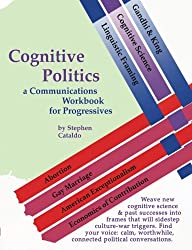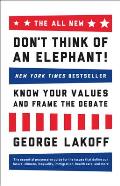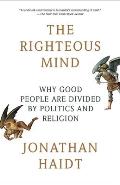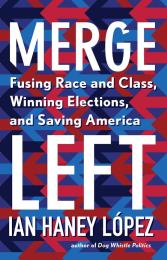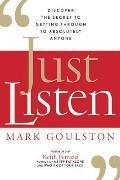Some favorite books (possibly affiliate links):
George Lakoff's don't think of an elephant! know your values and frame the debate helps Democrats get their heart into their message.
Read with Chapter 1 of Cognitive Politics
Jonathan Haidt's The Righteous Mind: Why Good People are Divided by Politics and Religion is a fascinating exploration into morality, culminating in the Moral Foundations theory about why we become liberals and conservatives.
Read with Chapter 2 of Cognitive Politics
Howard Zinn's A People's History of the United States is a great counter-balance to vapid high school history classes. It doesn't pretend to be balanced, but to show the side of history that is often skipped. Note to progressives: Zinn doesn't really pretend to be balanced, but to show the other side of history. I've started hearing from people in very progressive high schools, that sometimes this is all the history they get: and they don't appreciate getting biased partial stories either! We're most convincing when we've listened to everyone, confident that our view will hold up.
Read with Chapter 8 of Cognitive Politics on American Exceptionalism.
Reading Saving Capitalism, it's clear that Robert Reich has listened to conservatives: he doesn't just call for more equal outcomes, but shows why the outcomes people are experiencing are currently unfair.
Saving Capitalism connects how inequality is getting worse, and how that is bad for our country and our democracy, while also digging in to the reasons why it's getting worse. For all those negatives, it is a very positive book -- Reich is one of the few people who can both admit to the negative trends and describe a realistic, non-utopian answer to turn the problems around. Review on goodreads. Saving Capitalism is a great companion book for the "Economics" chapter of Cognitive Politics, sharing a progressive view that engages conservative starting points. If you have friends who think "redistribution" is unfair, buy them a copy of this book.
Read with Chapter 9 of Cognitive Politics — or gift to people you want to reach.
Erich Fromm's Escape from Freedom was a response to fascism that predates
Haidt's research on authority and Authoritarianism, but has many parallels.
Read with Chapter 2 of Cognitive Politics
Words That Work: It's Not What You Say, It's What People Hear Frank Luntz gives framing advice -- parallel to
George Lakoff -- to Republicans.
Read with Chapter 1 of Cognitive Politics
